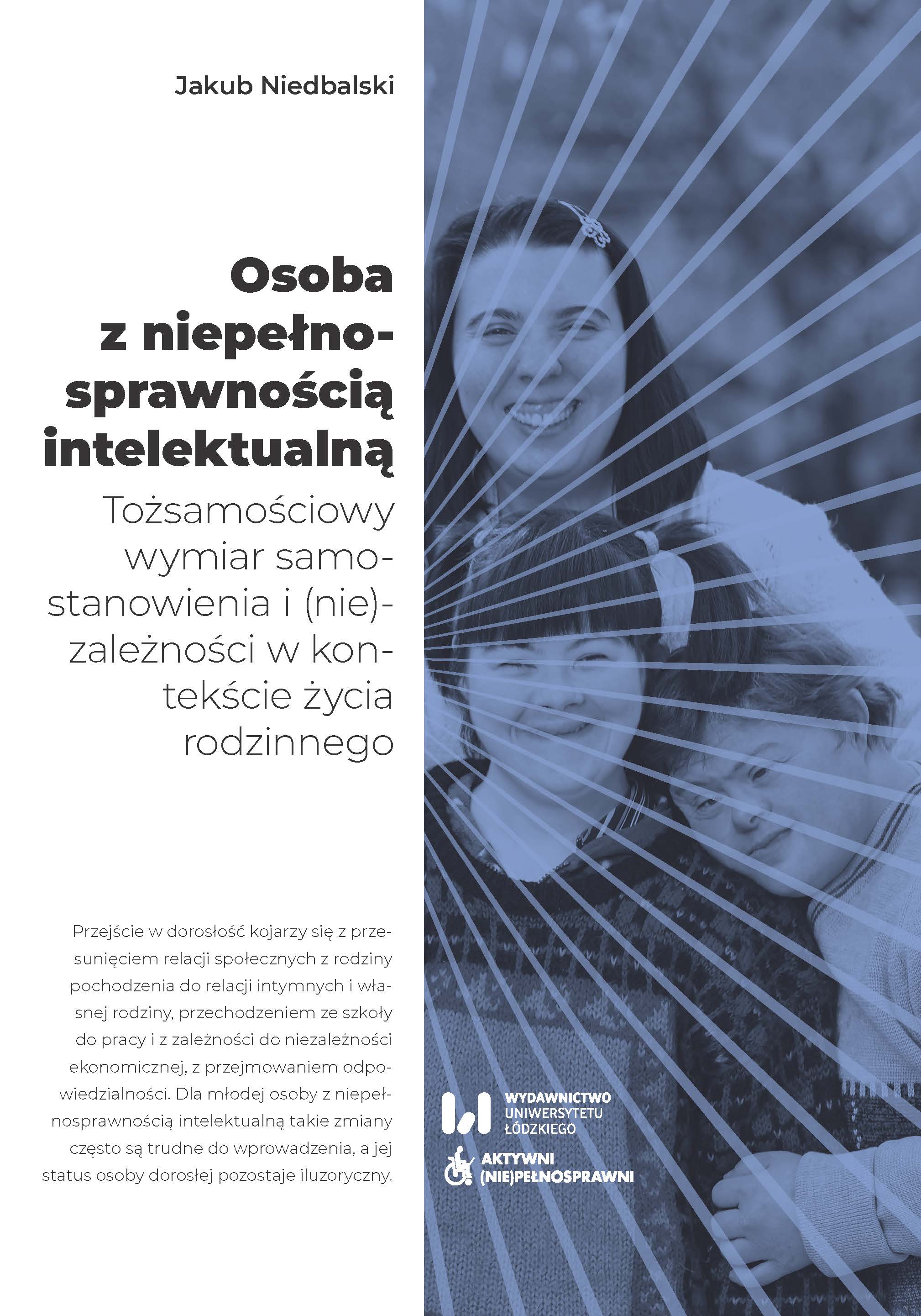Osoba z niepełnosprawnością intelektualną. Tożsamościowy wymiar samostanowienia i (nie)zależności w kontekście życia rodzinnego
Person with intellectual disability. The identity dimension of self-determination and independence in the context of family life
Author(s): Jakub Niedbalski
Subject(s): Social Sciences, Communication studies, Health and medicine and law, Environmental interactions
Published by: Wydawnictwo Uniwersytetu Łódzkiego
Keywords: disability; person with intellectual disability; family; self-determination; identity
Summary/Abstract: For young people, their transition into adulthood is commonly associated with a shift in social relationships, from families of origin to intimate relationships and one's own family; a shift from school to work; a shift from economic dependence to economic independence; and a shift toward the assumption of responsibility. When it comes to young people with intellectual disabilities, such 'milestones' are often difficult to achieve, and a status of an adult remains illusory. Therefore, the subject of the study was the experiences of people with intellectual disabilities and their family members (mainly parents) regarding the process of becoming independent and achieving autonomy and independence in life, as well as the barriers and obstacles that stood in the way of achieving them. Based on that, it has been attempted to determine what these experiences mean to individuals and how they understand them. The research interests are focused on everyday actions and practices of people with intellectual disabilities and their families, undertaken within interactions in life situations leading towards adulthood. Thus, the processual nature of changes taking place in generational families related to the growing up of children with intellectual disabilities was analyzed. The results of this study expand the knowledge in the field of entering into adulthood by young adults with intellectual disabilities by examining the process of negotiating autonomy in the family from the perspective of the young adults themselves and their parents. Hence, this study has shown that young people with intellectual disabilities not only have specific needs, but also views on their relationship with their parents. In this way, the results of the research can contribute to improved understanding of the needs of people with disabilities in the family, providing insight into how and to what extent young adults with intellectual disabilities need support at a crucial time in their lives, namely the adolescence. This can be of particular importance not only to the parents themselves, but also to certain institutions and social services that have been established to provide support to these individuals and their families.
Series: Uniwersytet Łódzki
- E-ISBN-13: 978-83-8331-049-7
- Page Count: 184
- Publication Year: 2023
- Language: Polish
- eBook-PDF
- Table of Content

